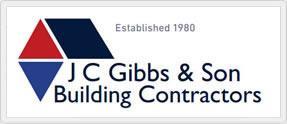Welcome to Studio-83. Start creating your website TODAY!
GET IN TOUCHHands off the content management system
Monday 28th September 2013
Is a content management system (CMS) a tool to democratise content creation or should it only be used by web professionals?
I remember vividly the pre-CMS era. Over worked web designers whose job was reduced to fixing typos and marketing people frustrated by the bottleneck that was the web team.
The democratisation of content creation
The arrival of content management systems felt like heaven descending from on high. Finally the web designers could go back to their job of designing and building sites, while the marketers and other content creators could manage their own content without having to wait.
Of course nothing is ever that straightforward. Content management systems were not the best designed things in those early days and the learning curve was steep. However, things did improve over time and training got better.
Now anybody with basic computer skills is more than capable of putting content online. The web was no longer the domain of those who understood acronyms like HTML and FTP. Content creation had been democratised and everybody was invited.
This all sounds great in principle, but some argue it has created problems.
The problem with open access
Unfortunately providing open access to edit a website is not without its risks, especially within an institution that has certain standards it wants to maintain. It also has an impact on the usability and accessibility of a site.
USING A CMS TO DESIGN
For a start many content creators are using the WYSIWYG editors built into most content management systems as a way to alter the design of a site. They are setting typography, imagery and colours that no professional designer would ever sanction. Some argue this undermines the brand of organisations, damages the user experience and undermines accessibility.
POOR WRITING SKILLS
There is also a feeling in certain quarters that many content creators are not equipped to write quality content for the web. People read in a particular way online and there are considerations to take into account. Many are not experienced in writing this way, even if they are good offline writers.
A LACK OF CONSISTENCY
Finally there is an issue of consistency. With multiple content creators across the organisation all updating the site, the chances of inconsistency in style and information is high. A website quickly ends up with a fragmented voice that further undermines brand and usability.
Stricter control? More training?
There is normally one of two responses to these challenges. Either an organisation invests more in training (in the hopes of teaching people best practice) or they implement ever stricter policies. It is rare for either approach to succeed.
Training can work when people are using a content management system on a near daily basis, but most content providers are not. By the time they come to next edit the site they have forgotten most of what they have been taught.
Stricter control suffers from a similar problem. Organisations lay down guidelines that people forget about or fail to follow.
Some success has been seen by removing WYSIWYG editors or adding workflows and permissions. However, it could be argued that these are merely papering over an underlying problem.
Perhaps there is a better way.
Manage content centrally
Some are suggesting that the role of a content management system is not to democratise content production, but rather to speed the creation and editorial process.
They go on to suggest that on that basis content management systems should only be used by dedicated web professionals. This does indeed address many of the problems.
These people would be working under central editorial control and so their output can be monitored for consistency. Also because they are working on the website daily, they become experienced with writing in the appropriate tone of voice and within the organisationís brand.
Of course you could argue that this just creates a bottleneck, like in the pre-CMS days. However, that may not actually be the case because a CMS is much faster than coding stuff by hand.
In addition dedicated staff who are veteran CMS users, experienced in writing for the web, are likely to be considerably faster than somebody who updates a page once every few months.
Up for debate
Not that everybody agrees this is the route content management should take. Some like the idea of anybody being able to update content and others claim that having a professional team is impractical. With that in mind, our debate topic is therefore:
"This house proposes that content management systems should only be used by web professionals."
Do you agree? Is the proposal even practical? How would you define a web professional?
by Paul Boag, boagworld.com
Our Services
Latest Project
What are we working on?

We are launching a new website for JC Gibbs & Son Building Contractors...watch this space!
Featured Testimonial
"It was a pleasure to work with Steve and we are delighted with the brand new website for our football club."


